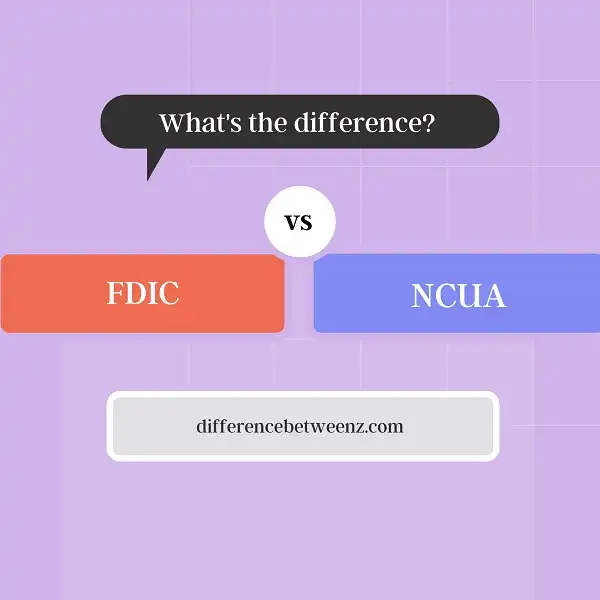If you’re like most people, you probably don’t know the difference between FDIC and NCUA. You may have heard of both, but aren’t sure what they do or why they exist. In this post, we’ll demystify the two organizations and explain how they differ from each other.
What is FDIC?
FDIC is the Federal Deposit Insurance Corporation. It’s a U.S. government corporation created by the Glass-Steagall Act of 1933. FDIC’s main purpose is to insure deposits in banks and other financial institutions in the event of their failure. FDIC is funded by premiums assessed on the insured banks and institutions, not by taxpayer dollars. When an FDIC-insured bank or institution fails, FDIC pays back depositors up to $250,000 per account. FDIC also has a Division of Resolutions and Receiverships that takes over the failed institution, selling it to another institution and returning as much money as possible to depositors. As of December 2017, FDIC insured about $7 trillion in deposits in more than 5,800 FDIC-insured institutions.
What is NCUA?
NCUA is the National Credit Union Administration, a federal agency that charters and insures credit unions in the United States. NCUA is an independent agency of the executive branch of the federal government. NCUA was created in 1970 to provide for the orderly operation and expansion of credit unions. NCUA is governed by a three-member board, each serving a six-year term. NCUA supervises and examinations credit unions insures deposits in credit unions and assists credit unions in operating in a safe and sound manner. NCUA also provides information and education to credit union members, directors, and staff.
Difference between FDIC and NCUA
- FDIC and NCUA are two important acronyms to know if you have money in the US. They both stand for US government agencies that protect your money in banks, but FDIC protects your money in regular banks and NCUA protects your money in credit unions. Here’s a more in-depth look at the FDIC vs NCUA.
- FDIC stands for Federal Deposit Insurance Corporation and it’s a US government agency that protects your money if it’s in a regular bank. FDIC insurance is automatic and free, and it covers up to $250,000 per depositor, per FDIC-insured bank, and per ownership category. So if you have $250,000 or less in a regular bank, FDIC will protect your money if the bank goes out of business. NCUA stands for National Credit Union Administration and it’s another US government agency that protects your money if it’s in a credit union. Like FDIC insurance, NCUA insurance is also automatic and free, and it covers up to $250,000 per depositor, per NCUA-insured credit union, and per ownership category.
Conclusion
The FDIC and NCUA are both organizations that ensure depositors’ money, but they offer different levels of protection. It is important to understand the difference between the two so you can make an informed decision about where to deposit your money.


